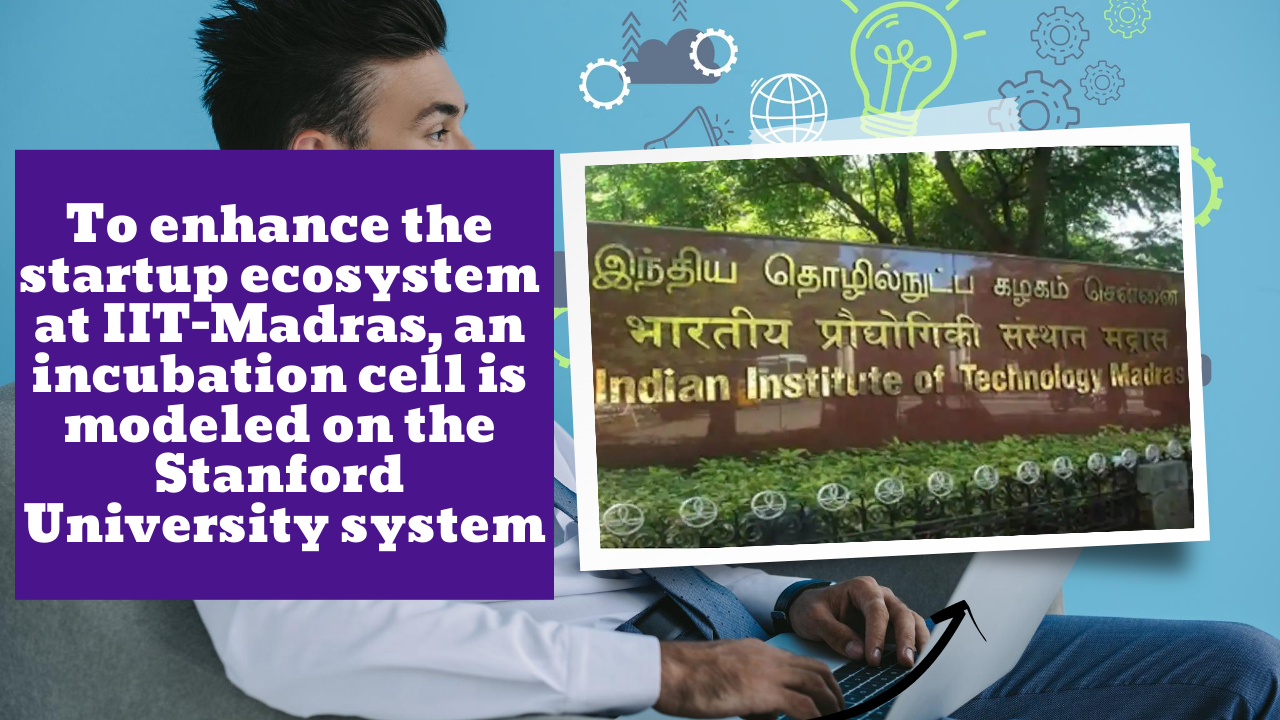The Indian Institute of Technology-Madras incubation cell is based on the one at Stanford University. The cell has spawned more than 240 new businesses in the last ten years.. More than 4,000 jobs have been created due to the program, and more than 205 patents have been filed as a result of its assistance. The lIT-M model takes into account the current unstable startup ecosystem. The incubator prioritizes deep technology and knowledge-based ventures. It provides office space and infrastructure, access to business support services, mentoring, and seed funding in exchange for equity stakes.
Key Highlight:
- The Indian Institute of Technology-Madras incubation cell is based on the one at Stanford University.
- The cell has incubated more than 240 startups in the last ten years, with a conservative value of Rs 11,400 crore at stake in them.
- Over 4,000 jobs were created, 205 patents were filed, and over Rs, 440 crore in revenue was generated in the fiscal year 2020-21 due to the program’s assistance.
- The lIT-M model takes into account the current unstable startup ecosystem.
According to the Stanford University model, the IIT-M incubation cell aims to connect startups with the best minds in technology at IIT-M. The cell has incubated more than 240 startups in the last ten years, with a conservative value of Rs 11,400 crore at stake in them. Over 4,000 jobs were created, 205 patents were filed, and over Rs, 440 crore in revenue was generated in the fiscal year 2020-21 due to the program’s assistance.
Moreover, it aspires to replicate its success in smaller towns and universities to serve as a multiplier in the startup ecosystem. “As of right now, we’re not satisfied with this. Professor Ashok Jhunjunwala, the cell’s president and driving force, says, “We must do more and build more.”
“Incubating 240 businesses took ten years. According to him, we have a plan to reach towns in the second-and third-tier and partner with existing incubation cells in these places so that we can reach 1 000 incubators by 2030 and incubate 1 000 businesses a year.”
Jhunjhunwala says, “We must assist the state’s universities in replicating the IT-M incubation model.” He adds that students often have many innate entrepreneurial ability; they need a process to guide them through it.
According to Jhurnjhunwala, the pandemic has drastically changed the fortunes of the tech sector, and youth interest in starting their businesses is at an all-time high. The lIT-M incubation cell expects to partner with more than 50 colleges in tier-2 and tier-3 cities over the next decade.
Crescent College, MAM College of Engineering, KSR College, and Sona College of Technology all signed memoranda of understanding to work together. As part of the lIT-M incubation cell, the startup companies will receive comprehensive support to help them reach investors, industry leaders, and the market.
Crescent College in Chengalpet, MAM College of Engineering in Trichy, KSR College in Erode, and Sona College of Technology in Salem have signed memorandums of understanding. We’ll help startups reach investors, industry, and the market by providing holistic support from the IIT-M incubation cell.







[…] IIT-Madras has set up an incubation cell modeled after Stanford University […]